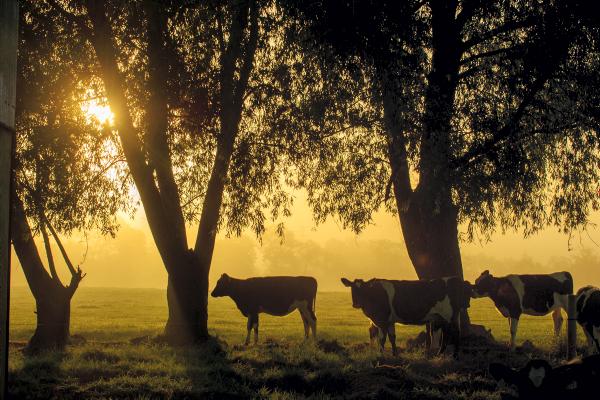Political leaders attending yesterday’s European Council in Brussels have agreed a deal which sees a target to reduce CO2 emissions across Europe by 2030 in comparison with 1990 levels.
No specific greenhouse gas emission limits have been set in relation to agriculture. Instead the deal sees agriculture given special treatment and commits the European Commission to examine how to encourage the sustainable intensification of food production.
The deal will be welcomed by Irish dairy farmers who are planning to expand their dairy herd when quotas are abolished next year.
Commenting on the climate change agreement, Minister for Agriculture Simon Coveney said: “We have succeeded in persuading others through the force of our arguments, based on sound science and the proven record of Irish agriculture in producing meat, dairy and other products with a low and improving carbon footprint.”
He said he regards the deal as a vital recognition that we me must try to increase food production to meet rising demand in a way that is “genuinely sustainable”.
In relation to forestry, the Minister said that the conclusions agreed by EU leaders also specifically noted the role afforestation can play in carbon sequestration. This is very important for Ireland as afforestation is a major GHG mitigation measure that we are taking on agricultural land. “It is essential that the EU’s GHG accounting system should take the value of afforestation fully into account in the future in order to encourage this real and additional mitigation,” the Minister said.
IFA reaction
IFA President Eddie Downey said the outcome of the climate talks in Brussels today was welcome and represents a significant acknowledgement of the multi-functional role of agriculture. The agreement secures important commitments as part of the EU strategy up to 2030.
Eddie Downey said, “IFA has always insisted that our model of sustainable food production should not be jeopardised in these discussions. Government strongly supported this position with Taoiseach Enda Kenny adopting a strong negotiating stance this week. The outcome provides a framework that can safeguard Ireland’s carbon-efficient agriculture sector”.
He said, “Ireland’s agri-food sector supports 300,000 jobs right across the country, is the largest exporter of beef in Europe, produces 15% of the world’s infant formula and has overall food exports of over €10 billion. This is being achieved sustainably. Ireland’s beef and dairy farmer’s carbon footprint is among the lowest in Europe, as verified by Carbon Trust and others”.
On bio-energy, he said the Government must renew its commitment to an indigenous bioenergy sector following the European Council’s decision to increase the use of renewable energy to 27% in these talks. “Bio-energy represents a real farm diversification opportunity. It will also deliver important national and EU renewable energy and climate targets. The Government must come forward with specific policy actions and a timeframe for the delivery of these to kick-start a vibrant and sustainable bio-energy sector in Ireland.”
#euco climate concl'ns: low mitigation potential in agric, afforestation offset and LULUCF integration by 2020 to be reflected in targets
— Alan Matthews (@xAlan_Matthews) October 24, 2014
At least we got a deal. Not ambitious enough but the door is open for more, if US & China get real in 2015. http://t.co/2g14P7tube #climate
— Eamon Ryan (@EamonRyan) October 24, 2014Government needs to change tack & start taking climate change seriously. Invest in clean energy, public transport & high quality local food.
— Eamon Ryan (@EamonRyan) October 24, 2014





 This is a subscriber-only article
This is a subscriber-only article











SHARING OPTIONS: